The Ice-cream Man – poem –
Ice Cream Song for Children | Learn with Little Baby Bum | Nursery Rhymes for Babies | ABCs and 123s
CLICK ONTHE BELOW MENTIONED CLASS V WS TO DOWNLOAD IT & TRY IT OUT.
CLASS-V- ACTIVITY SHEET- THE ICE CREAM MAN-2021.
Rohini KV MINAMBAKKAM
The Ice-cream Man – poem –
Ice Cream Song for Children | Learn with Little Baby Bum | Nursery Rhymes for Babies | ABCs and 123s
CLICK ONTHE BELOW MENTIONED CLASS V WS TO DOWNLOAD IT & TRY IT OUT.
CLASS-V- ACTIVITY SHEET- THE ICE CREAM MAN-2021.
DEAR STUDENTS & PARENTS,
There are multiple benefits in getting up early. The following are some of them.
Children must be habituated to get up early from their young age. It is also equally important that they have sufficient sleep. So they must go to bed early the previous night. Parents should take effort in shutting down their TV or computer or mobiles by 8 pm so as to make the children go to bed, prepare them to sleep by telling stories and make them doze off on or before 9 pm. This will surely make a difference in the child’s behaviour. S/he will have the confidence to do things properly at the right time.
LISTEN AND ENJOY THE SONGS & LEARN BY HEART.
ACTIVITY :


ACTIVITY :2 : ENGLISH WORKSHEET
CLASS: III SEC:__ LN: Good Morning DATE: ______
|
1. Write rhyming words for the given words.
bee – _____________ sky – _________________
good – _____________ sun – _____________
play – _______________ right – ______________________
sad – _________________ how – __________________________
wide – _________________ day – ___________________________
|
ACTIVITY SHEET: 3
See the picture and match their opposites and write them in the column given.
|
good, less, night, day, awake, bad, hide, asleep, more, seek, right, out, left, in
|
1) _____good_______ ___bad__________
2) ____________ _____________
3) ____________ _____________
4) ____________ _____________
5) ____________ _____________
6) ____________ _____________
ACTIVITY :4
DAY TIME:
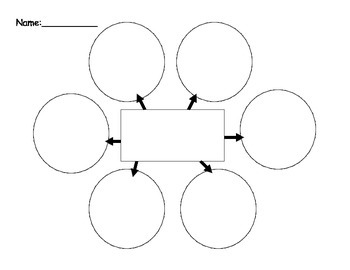
NIGHT TIME:

ACTIVITY :5 (WORKSHEET)

ACTIVITY :6
CREATIVE WRITING :
Use the clue words and given below and write five sentences ON YOUR OWN looking at the picture given:
( sun, rising, cat, brushing up, getting ready, SCHOOL, birds chirping)
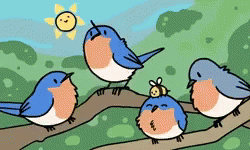



ACTIVITY : 6

ACTIVITY :7



One day when Rahul returned back from school he found that no one in the neighbourhood is there to play with him.He felt all alone and started crying. One day when Rahul returned back from school he found that no one in the neighbourhood is there to play with him.He felt all alone and started crying.
Source: GOOD MORNING – Class- III ENGLISH Prepared By Padma P KV NO.1 Uppal. – ppt download

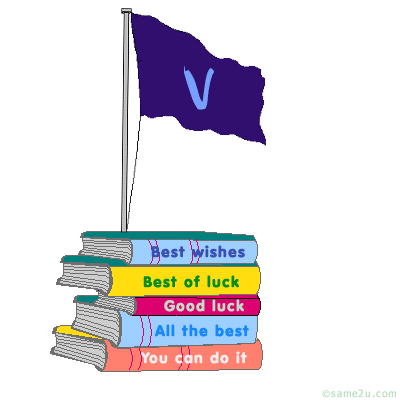





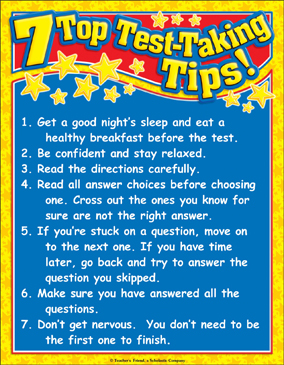


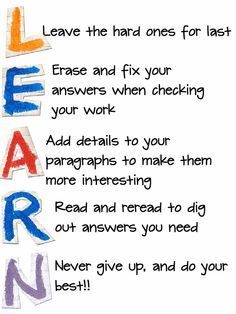
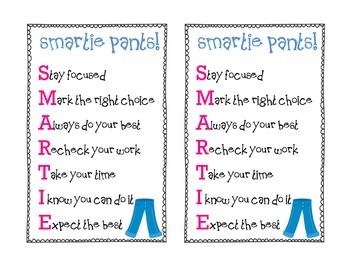
 FOR BOARD EXAMS :
FOR BOARD EXAMS :


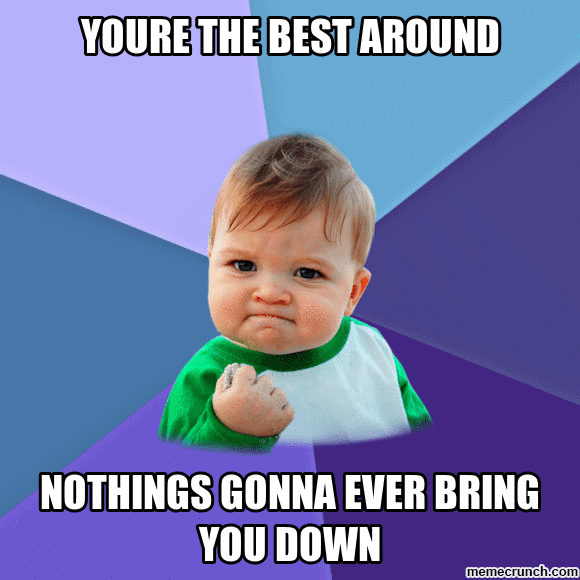
DEAR PARENTS AND MY BELOVED STUDENTS!
I HOPE YOU WILL FIND THIS PRACTICE PAPER OF ENGLISH VERY USEFUL AND TO GET MORE MARKS IN YOUR SUBJECT.
WISHING YOU ALL THE BEST!
PORTIONS: FROM UNIT 6: THE MILKMAN’S COW TO UNIT 10: PINOCCHIO
1) Read the following passage and answer the question :
Tree: come ,my boy , come and climb up my trunk and swing from my branches.
Boy: I am too big to climb and play. I want to buy things and have fun . I want some money. Can you give me some money ?
Tree : I’m sorry but I have no money. I have only leaves and apples . You can pluck my apples and sell them in the market .Then you will have money.
Narrator : The boy happily plucked the apples and carried them away. t The tree was also happy. But the boy stayed away for a long time and the tree was sad. One day, the boy came back and the tree shook with joy.
Q1) Why was the tree sad ?
Q2) Why did the boy not climb the tree and play ?
Q3) What made the tree happy ?
Q4) Why did the boy pluck apples ?
Q5) The boy needed money to ______________?
Q6) _______is a place where we buy and sell things .( Refer to passage)
Q7 ) When the boy came back ,the tree ________with joy.
Q8) The tree was not happy to give apples to the boy. True/False
Q9) A tree and an elephant both have this as a part of their body. Pick out that part from the passage.
Q10) Name the lesson from which the above passage is taken .
2)Read the passage given below and answer the questions.
A learned Pundit once visited the court of Akbar. He told the king and his courtiers that he had mastery over many different languages.
The Pundit could speak many languages fluently. He was so fluent that no one could find out what his mother tongue was. He challenged everybody at the court to name his mother tongue. When everyone failed, the challenge was taken up by Birbal.
That night, Birbal went quietly to the Pundit’s room when he was asleep. He whispered into Pundit’s ear and tickled it with a feather. The Pundit, half awake, cried out suddenly and shouted out words in his mother tongue.
3)Read the following passage and answer the question :
Once upon a time , an old carpenter bought a very queer piece of wood. As he used his plane on it, he heard a little laughing voice say, “ Stop! You are tickling me.” The old man was puzzled by the voice. He said , “ This is a strange piece of wood . What shall I do with it ? I think I’ ll make it into a puppet.” He set to work , and as the puppet boy took shape , the old man said , “ He must have a name. I will call him Pinocchio.” As soon as he finished making the eyes , the carpenter was amazed to see them move.
Q1) Who bought a very queer piece of wood?
Q2) What kind of voice did the old man hear?
Q3) Who was puzzled by the voice?
Q4) What did the carpenter make with the wood ?
Q5) He said, “ This is a __________ piece of wood.
Q6) He named the puppet_____________________.
Q7 ) ____________ was amazed to see the eyes move.
Q8) It was a simple piece of wood . ( True/False )
Q9) Find the word from the passage that means –‘ completed’.
Q10) From which lesson is the above passage taken .
1)Read the following passage and answer the question :
Turkeys are interesting birds . A male turkey is called a Tom , a female turkey is called a hen and a baby is called a poult. Turkeys have a flap of skin under their chin called a waddle. They like to eat acorns, berries ,insects and seeds. The turkey is a favourite meal during Thanksgiving and Christmas . Wild turkeys can fly for about 100 yards . Some turkeys are very large and heavy weighing up to 17 kilograms. They prefer to sleep perched atop tree branches.
Q1) What is a female turkey called?
Q2) What is a waddle?
Q3) When is turkey served as a favourite meal?
Q4) What do the turkeys like to eat?
Q5) Turkeys prefer to sleep on _____________ .
Q6) A baby turkey is called ___________.
Q7) Some turkeys weigh upto ________________.
Q8) Turkeys are ________________.
Q9) Give a suitable title for the passage.
Q10) Find the word from the passage that means –‘ to choose’.
2) Read the passage given below and answer the questions: –
Bees live in a house that is called a hive. There are three kinds of bees: workers, drones, and queens. Only one queen bee can live in each hive. If she is lost or dead, the other bees will stop their work. Bees are very wise and busy little creatures. They all join together to build cells of wax for their honey. Each bee takes its proper place and does its own work. Some go out and gather honey from the flowers; others stay at home and work inside the hive. It is not safe for children to handle bees. Bees have a painful sting that they use in their defence.
Q1) Why is it not safe for the children to handle bees?
Q2) Who is the most important bee in the hive?
Q3) What are the different kinds of bees found in a beehive?
Q4) How is the work divided in the hive ?
Q5) Bees live in a _____________.
Q6) Bees sting as a means of _______________.
Q7) If the queen bee is lost or dead , the other bees ______________.
Q8) Honey is stored in cells made of ___________.
Q9) Give a suitable title for the passage.
Q10) Identify the word in the passage that means – to collect.
Once a wolf, a bear and a jackal went hunting under the leadership of a lion. On the way, they came across a buffalo. The four of them cordoned off the buffalo and killed him with their joint efforts. The body of the buffalo was cut into four parts. All of them were eager to have their part of prey.
Suddenly the lion, their mightiest partner roared, “wait ! if anyone is eager to have his part of prey, then listen to me first ! Being the partner of this hunting team, I should get the first part of the buffalo, being the leader of our hunting team, I must get the second part, I want the third part of it for my cubs and anyone of you willing to claim the fourth part, he should come and fight with me to get it.”
3. Read the passage given below and answer the questions.
India is a land of festivals and many festivals are celebrated here. Holi is one of them. It is in fact, a festival of colours. Holi is celebrated in all villages, towns and cities. People sing folk songs and dance to the beat of drums. Children as well as adults celebrate Holi with great enthusiasm. People smear ‘gulal’ on each other’s forehead. The children get ready with syringes and buckets full of coloured water. They throw it on friends relatives and even passersby. Some throw water balloons. In the true sense Holi is the festival of joy and celebrations.
1)Why India is known as the Land of festivals ?
2)Which festival is known as the festival of colours ?
3)How do people enjoy Holi ?
4)What did children do with coloured water?
Enjoyment
5) Read the following passage and answer the questions:
The cartoon character Mickey Mouse has become an icon for the Walt Disney Company. It was created by Walt Disney and Ub Iwerks. Mickey Mouse first appeared in the short film ‘Steamboat Willie’ on November 18, 1928. Walt Disney originally called Mickey “Mortimer Mouse”. Mickey wears red shorts, large yellow shoes, and white gloves. He has three fingers and one thumb on each hand. Mickey generally appears alongside his girlfriend Minnie Mouse, his pet dog Pluto, his friends Donald Duck andGoofy, among others.
Answer the following.
Fill in the blanks.
Tick the Correct answer.
7) Mickey’s first appearance was in the year
[a] 1938 [b] 1982 [c] 1928
8) Mickey is the icon for the company
[a] Walt Disney [b] world Disney [c] Mickey Disney
9) Mickey has four fingers and one thumb on each hand.(True/ False)
10)Give a suitable title to the passage.
Answer the following :
THE SCHOLAR’S MOTHER TONGUE ( PROSE)
2) What did the Pundit claim to know ?
3) How did the Pundit challenge everybody ?
4) What did Birbal do to wake up the Pundit ?
5) What was the Pundit’s mother tongue ?
6) In times of difficulty which language does a person speak ?
A WATERING RHYME
Q1) When should we not water the plants?
Q2) Which part of the plant should be watered?
Q3) Reference to context .
“ Watering at noonday ,
When the sun is high,
Doesn’t help the flowers,
Only makes them die.”
b)What happens to the plants if you water it at noon ?
Q1)What did the boy make with the branches of the tree ?
Q2) Why is the play called , ‘ The Giving Tree’ ?
Q3) How was the stump of the tree useful?
Q4) How did the tree help the boy earn money ?
Q1 ) What did the library door say ?
Q2) Why did the child in the poem like looking at the pictures?
Q3 ) Reference to context:
“ Tall skinny books
Up high on the shelf
Little fat books
That stood by themselves”.
Q1) Why did grandfather give the children money?
Q2) Where did they go to buy books?
Q3) Did the girl buy a picture book?
Q1)From where did the naughty boy come?
Q2) Where did the naughty boy go ?
Q3) What did the boy wonder about ?
Q1) what did the carpenter buy ?
Q2) What did he call his puppet ?
Q3) What did Pinocchio say at the end ?
II. Fill in the blanks using the words given in the brackets.
III. Write past tense of the following words.
I. Complete the sentence using whoever, Wherever, Whenever.
II. Choose the correct word from the box and fill in the blanks.
I. Make one sentence with each of the following words.
II. Add ‘ly’ to the following words an re-write them.
III. Do as directed.
I. Pick out the silent letter /letters from the given words.
a) Know b) walk c) doubt d) wrong
e) could f) four g) light h ) bridge
2) Spell the words correctly by adding __’ing’ to the words given in the brackets and complete the sentence.
a) I found a rabbit __________(hide) in the bush .
b) The little boy kept _________(tug) at his father’s shirt .
c) ___________( swim) is a good exercise .
d) It is of no use ________ (cry) over split milk.
e) Menaka was __________( dance) gracefully.
3) Choose the correct word from the bracket and fill in the blanks.
a) We can see ____________( threw / through ) the glass window .
b) ____________( wear /where ) the red gown to the party .
c) Rotis made of wheat __________(flour / flower ) are
d) My class teacher has a _________( son /sun) .
e) __________( Their / There) are many books in my school library.
Punctuate the given sentences.
a) is amit coming home in june
b) on Sunday i will watch a tamil movie
c) rakesh seema and mohan are my friends
d) why are you late to school meena
I. Make new words adding ‘- ly ‘ to the words in the bracket and complete the sentences .
II. Fill in the blanks with the correct form of the word, given in the bracket.
( singular /plural)
II. Rearrange the jumbled words into a meaningful sentence:
I. Fill in the blanks with describing words in to the passage below.
One ___________day, my ______________puppy jumped onto our __________couch and played with its _________ball. Suddenly a _______ boy with a _______ whistle entered the room . Seeing the _______ puppy, the boy blew his whistle . The _________puppy ran and hid behind the ______________ cupboard with a ____________handle. The ____________ boy went away closing the door.
2) Imagine that you are going for an excursion tomorrow. What will you do there? Write five sentences beginning with-
a) I shall __________________________________________
b) I shall __________________________________________
c) I shall __________________________________________
d) I shall __________________________________________
e) I shall __________________________________________
1)Write the opposites of given words.
a) rough_________ b) light ____________
c) same__________ d) thin_____________
e) young__________ f) wise______________
2) Insert suitable ‘Articles’ ( a/an/ the) in the blanks and complete
the sentence .
3) Complete the sentences with appropriate preposition.
( in, with, of, on, to, into, by )
1.Ram is going _____the office.
1) Make opposites with the words – (dis_ , in__ )
respect ___________ own ___________
able ___________ capable __________
efficient ___________ secure ____________
satisfy ___________ active ___________
correct ___________ agree ___________
believe ___________ interest___________
2) Make naming words by adding ( ness , ity , ty ) at the end of the words given below. One has been done for you.
public publicity
forgive ___________ blind ____________ kind ______________ cruel _____________
polite_____________ swift _____________ moral ____________ solid _____________
dark ___________ equal ___________ active ___________ lazy ___________
casual ___________ dry ___________ public ___________ valid ___________
3) Add ‘ – er ’ or ‘-r’ to the doing words below to make new words.
stiff ___________ strange __________ fight ___________ dance ___________
juggle ___________ ride _____________ speak ___________ use _____________
write ___________ joke __________ young _________ silence ___________
bright _________ read ___________ clever – _______________ drive – __________
ii. Find the person from the clues :
Eg. Prison, thief, gun, uniform – Policeman
iii. Rearrange the letters to make a meaningful word.
iv. Continue the word chain as shown in the example:
Example: Tongue – empty – yard
v Correct the word wrongly spelt and rewrite the sentence:
vi. Identify the four or five lettered word from the grid.
| a | b | w | e | a | r |
| c | s | o | a | k | n |
| h | o | u | r | j | l |
| d | g | t | t | f | m |
| y | t | q | h | n | o |
Ans : soak
Earth
Hour
wear
vii. Circle the word with correct spelling:
viii. Identify the word which means : ( Ans: stump ,delicious , pluck )
A) i)____ell ii) ____ell iii) ____ell iv) ___ell
B). Make words ending with ‘ _ ook ‘( eg: book)
i) ___ook ii) ___ook iii) ___ook iv) ____ook
C) Make words ending with ‘ __ail’ ( eg : mail)
i) ___ail ii) ___ail iii) ___ail iv ) ___ail
x. Fill in the the blanks with ( a, e, i, o, u ) and complete the words.
a) m _ chin _ s b) cl mb _ d c) _ l _ ne d) f _ n _ lly e) p ict _ res
xi. Combine the given words.
grand + father ___________ play + ground ___________ some + body ___________ news + paper ____________ book + shop ____________ drawing + room —————— home + work ___________ cup + board ___________
xii. Write the rhyming words.
red _________ hard __________ long ___________ found ___________
weighty ___________
xiii. Write the missing letters and complete the words.
a) ca _ rpen _ er b) a _ aze _ c) fi _ is _ ed d) p _ a _ e e) na _ gh _ y
xiv. Make 3 letter words from the following words.
PINOCCHIO CARPENTER
____________ ____________
____________ ____________
____________ ____________
CREATIVE WRITING
1) Use the given clues and develop a story. Give a suitable title and write the moral of the story.
b)CLUES : Farmer in a village …………… had a hen……. Golden egg……….. farmer became rich By selling golden eggs ………….. greedy …………… thought to get all eggs at a time ……… killed the hen ………….. found no eggs.
c) CLUES : donkey __ found ___lion’s skin. Put it on __looked like a Animals ran away ___ scared . Night _____ other donkeys braying. Donkey ____ not stop himself _____ starts braying. All animals said-“ you are only a donkey.”
a)Write about your school library in about 40-50 words.
b)Write about your favourite domestic animal in about 40-50 words.
3) PICTURE COMPOSITION
In about 40-50 words describe the given pictures. You may use the clues.

|
II.

|
III.

|



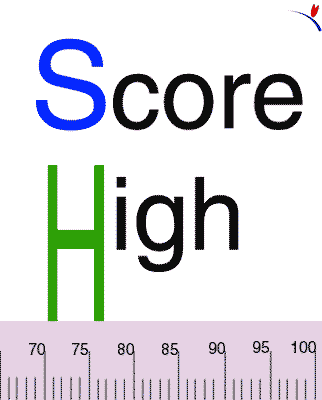

Dinner was brought for the farmer in a dish which was ten feet in meter. The farmer’s wife crumbled some bread and placed it before me. In the middle of the dinner I heard a noise behind me. It was the purring of a cat that was ten times larger than an ox. The farmer’s wife was stroking him. Then entered the farmer’s one year-old son in the arms of a lady. On seeing me the child grabbed me from the table and put my head into his mouth. I shouted so loudly that the baby dropped me. I would have broken my neck if the mother had not held her apron under me.
Q.1. Name the lesson from which the passage has been taken?
Ans. _____________________________________________________
Q. 2. Where did the class go for a picnic?
Ans. ______________________________________________________
Q. 3. Why didn’t the children want to sit with Hari?
Ans. ______________________________________________________
Q.4. Was Hari happy?
Ans. ______________________________________________________
Q5. Tick the correct answer:-
Hari was friendly/unfriendly with everyone.
Q. 6. Give one word for:
To have competition with ______________________________
Q. 7. Complete the sentence:
On that ________________________________________________.
Q. 8. Fill up:
When they _____________________ at the seaside , out jumped all the children.
Q.9. Make sentence:
Page 14 of 37
Bright: ____________________________________________________
Q. 10. Who taught Hari a lesson in this story, at the end?
Ans. __________
1.Where were they travelling to?
2.How far is New York from San Francisco?
3.How many days would it take for the train to reach New York?
4.Why did the train slow down?
5. Complete the sentence-
It crossed steep________________________
6. Fill up:-
The procession was like a ______
7. Choose a word from the passage which mean:-
Body of persons or animals walking together ___________
8. How long did the train take to cross railway track?
9. Where is New York?
10. Name the lesson from which this passage is taken.
High up in an icy lair
Lived a little polar bear
Snow white,snow bright was her mane
Malu Bhalu was her name.
Very soon our malu Bhalu
Learnt the things her parents knew
Fish to catch,big and small…
Malu was a clever girl.
Malu said to her mother one day
Ma, I am going far out to play.
I want to see the things that lie
There beyond the big blue sky.
Answer the following
_______________________________________.
READ THE FOLLOWING PASSAGE & ANSWER THE QUESTIONS:
Long ago in the land of Kangleipak in Manipur, there lived a Ningthou and Leima. They were loved by the people. The Ningthou and Leima loved meeyam, their people. The people were not only the one who loved them but also the trees, the birds and the animals loved them. Ningthou and Leima thought that everybody in Kangleipak should live in peace. The king had three sons, Sanajaoba, Sanayaima, Sanatomba. Twelve years later, a daughter was born. She was named Sanatobmi. She was a lovely child, soft and beautiful inside.
Q1. Name the place where the Ningthou and Leima lived?
Ans________________________________________________________________________
Q2. Fill up:
They never stopped thinking about their meeyam, their____________
Q3. Who all loved Ningthou and Leima?
Ans.________________________________________________________________________
Q4. Did Ningthou and Leima have a daughter?
Ans.________________________________________________________________________
Q5. Pick out two –ly words from the passage.
a. . . . . . . . . . . . . . . . . . . . . b. . . . . . . . . . . . . . . . .
Q6. Describe Sanatombi in two words.
a. . . . . . . . . . . . . . . . . . . . . b. . . . . . . . . . . . . . . . .
Q7. Complete the sentence:-
The Ningthou and Leima ________________________________.
Q8.Make sentenceTrees. . . . . . . . . . . . . . . . . . . . . . . . . . . . . . . . . . . . . . . . . . . . . . . . . . . .
Q9. Write any two qualities of a good ruler.
a. . . . . . . . . . . . . . . . . . . . . . . . . b. . . . . . . . . . . . . . . . . . .
Q10. From which lesson is this passage taken.
Q10. Write a title for this passage.
Ans : _________________________________________________
(g) Fill upThe sun weighs as much as _______ earths.
In India the Himalayas extend from______________ to _______________.
ANS :
Q2. The front door step is at the back
You are walking when you stand
You wear your hat upon your feet
In topsy-turvy land.
QA. Pick up the rhyming words from the above lines?
QB. Fill up:-
a. We meet the buses on the ______ in topsy-turvy land.
b. People walk on their _____ in our land.
Q3.Complete the lines:-
a. You pay for what you ————- get.
b.The sea is made of ——————.
Q4. Read and answer the following questions:-
And buses on the sea you”ll meet,
While pleasure boats are planned,
To travel up and down the streets
Of Topsy- Turvy Land.
(a) Name the poem from which the stanza has been taken.
Ans: _____________________________________.
(b) Where do we find the buses in Topsy-Turvy land?
Ans: _________________________________________.
ANSWER THE FOLLOWING {2 MARKS}
1. Why did the captain send the men to the land?
2. Why did the men rush back to the ship?
2) Do you like to share your things with your friends? If so what?
3) How can you make friends?
4) What are the things that the girl does not want to share?
5) Why are the two children nobody’s friends?
6) What does the child in the last stanza want to share?
7) Who is your best friend? Write two describing words for your friend.
1.Re-arrange the words to make meaningful sentences
a. Renu/ naughty /is/ a/ girl.
b. Circus/see/children/excited/are/to/a.
a.wear_________________________________________________________
were ________________________________________________________
b. Son_________________________________________________________
Sun_________________________________________________________
I. Look at the given example and complete these:-
clean cleaner cleanest
1. slow __________ __________
2. __________ lighter __________
3. __________ busier __________
4. short __________ __________
5. __________ __________ longest
6. bright __________ __________
Frame Questions using the words given in the bracket
a. The land was discovered on 16th June 1730.(When)
b. Gulliver was caught in the land of giants.(Where)
c. There was a fence to pass from one field to another.(What)
Choose the correct expressions to complete the sentencea. The old man’s hair is as white as _______(snow/coal)
b. I felt as light as ________ after exercising.(stone/feather)
Complete the following sentencea. He was cleaning out his cupboard when _______________
b. _________________when the teacher walked into the room.
WRITE THE OPPOSITES FOR THE WORDS GIVEN
1. Lend x ______________ 2. Nobody X _____________ 3. Never X _____________
4.Nothing X ___________ 5. Friend X ____________ 6. Strong X _____________
10.Beginning X __________ 11.Quiet X____________ 12.Punish X____________
13.Smile X_____________ 14.Like X_______________ 15.Heavy X______________
B. ADD “LESS “ AND MAKE WORDS
1. Friend __________ 2. Home __________ 3. Care __________ 4. Use ____________
5. Worth _____________
C. Now write at least 5 words on your own ending in “less”
1. __________ 2. ___________ 3 . ____________ 4. ___________ 5. _____________
E. WRITE THE RHYMING WORDS FOR THE WORDS GIVEN:
1 train ______________ ___________ 2 friend _____________ ______________
3 teacher ___________ ____________ 4 palm ____________ _______________
5 pair ____________ ________
F. USE ARTICLES AND FILL IN THE BLANKS
1. She gave her child _______apple for breakfast.
2. The children play with _____ball in the school.
3. ___________Taj Mahal is ____ wonder of _____world.
4. Hair is _____ unpopular boy.
5. Ram found ____empty bottle, ______ book, _____umbrella and ___shirt in the ground.
G. Write the contraction
1. He is__________ 2. you are_____ 3. Do not_____ 4. Have not______ 5. Will not______ 6. Shall not_______
Fill in the blanks by changing the word in the brackets suitably:-
1. The girl slept___________ {sound}
2. The children finished their homework _________. {quick}
3. The old man shouted __________. {loud}
4. Do your work _________. {neat}
5. I can do the sum____________. {easy}
B. Read the sentences and pick out the action words:-
1. She walked slowly __________
2. Nisha is driving her car carefully ___________
3. I spoke to her recently. ___________
4.We should not drive fast. ___________
C. Tick the correct word:-
1. There {is/are} no news today.
2. Each of these boys{has/have} passed.
A Choose the correct adjective:-
1. The street was so ……………….. that the car could not turn properly(narrow/wide)
2. My shoes were so ………………that my feet started hurting.(loose/tight)
3. The teacher is very happy when the class is ………………………(noisy/quiet)
4. It is …………………….. to study for two tests in one day.(easy/difficult)
B Look at the clues and find out the words1. It rhymes with ‘slow’ and means, to cut the grass in a lawn_________
2. It rhymes with’ ground’ and means to get something which was lost__________
3.It rhymes with’ you ‘ and is another word for less_______
4. It rhymes with ‘crowd’ and is the opposite of humble________
5. It rhymes with ‘know ‘ and means, to ride a boat________
1.Complete the following sentences
a. A ____________ of cattle was grazing in the field.(flock/herd)
b.My father booked a _________ of rooms for us in the resort.(site/suit)
c. The street was so ……………….. that the car could not turn properly(narrow/wide)
d. My shoes were so ………………that my feet started hurting.(loose/tight)
e. The teacher is very happy when the class is ………………………(noisy/quiet)
f. It is …………………….. to study for two tests in one day.(easy/difficult)
Fill in the blanks from the given pronouns:
I me you mine my their yours Over to for at toward about
a) They don’t live in ……………………. Old house.
b) ………………… am the only son of my parents.
c) When are …………….. coming ? The dinner is ready.
d) This house is ……………… , I live in it.
e) This is ………………… favourite book. I won’t give it to anybody.
f) Do or die—the choice is ………………….
g) They gave it to ……………….. and my family.
(i) left/ They/the/city/dark/before
………………………………………………………………………
(ii)flower/the/is/ Rose/beautiful/most
…………………………………………………………………..
(iii) part/jungle/river/The/through/this/runs/of
…………………………………………………………………………..
Q1 – Fill in the blanks with is/ has/ are/ have
a) Mathematics ___________ easy for him.
b) His trousers ____________ too short for him.
c) Fees _____________ to be paid by the fourth of every month.
d) His scissors _______________ very sharp.
e) He ________________ a black pair of shoes.
f) I _______________ a beautiful watch.
g) His furniture _________________ not costly.
h) The scenery of western sea coast _______________ beautiful.
Use un/im:
a. believable = ___________ + _____________ = _________________
b. possible = ____________ + _____________= _________________
Fill in the blanks choosing correct forms of the pronouns:-
a. Priya and__________often play together. (I/me)
b. Joe and Tim can spin a basket ball on _____ forefingers.(you/their)
c. The book with red cover is ________ (my/mine)
d.Let _ go for a picnic today. (we/us)
Write the word of the opposite gender in the given sentences :
Join the given sentences using ‘who’ and ‘which’_
1.I want to meet Ms.Reema. She teaches fifth lass.
2.This is a huge banyan tree. It is the home of many birds.
B Fill in the correct word in the blanks:
In a forest, there ___(live/lived) a goblin named Cruel. One day,he______(met/meet) an old
man. Immediately Cruel ________(leap/leapt)on to the old man’s shoulders and
____(ordered/order) him. Move fast, the frightened old man _____ (obey/obeyed) him.
Fill up with correct form of phrases:
As Gandhi stepped aboard a train one day, one of his shoes ___________________
(slip/slipped) off. To the amazement of the companions Gandhiji _____________
off his shoes.(take/took)
1) Let us imagine a topsy turvy scene and describe it in five lines.
I. Make sentences about yourself using the following clues
1)I love
2)I like
3)I don’t mind
4) I don’t like
5) I hate
6) I can
7) I cannot
8) Things I like doing alone
9) Things I like doing in a group
10) I decide
Choose the correct spelling
A bellowing/bellowing b reap/reep
Make two” baby” words fromINHABITANTS ________ ________
Arrange the following words in alphabetical orderUnder middle held speak
Dream arm farmer wife
Fill in the missing letters-
(a) s—-v—ral (b) app—o—-che
A. Give one word for:-
1. rough and deep sounding __________________
2. injury by blow to body __________________
Write down the words from the poem which means:-
a. Underground passage for people to cross ______
b. below _________
c. When rain falls heavily ___________
d. lift __________
e. ill-tempered _______________
2.Make baby words fromELEVATORS
___________________ _____________ ______________ _____________________
a) stoers/stores b. grumpy/grumby
Atracted – _________________ 4. Pussanger__________ 5. Defanded________.
II. Write the correct word with the help of clues given
1.moved back________ 2.circular and curved shape___
3.Underground passage_______ 4. Trembled_____
5. a deep gorge_____ 6.stormy______
7. protected___ 8 .a body of persons or animals walking together____
I. Fill up:
a. We did not ______________in the class. (shoot/shout)
b. Do you like to drink ______________? (Water/voter)
c. He _____________ to climb the tree. (tired/tried)
d. Will you ______________ help me? (pleace/please)
e. I can______________ with my eyes (see/sea)
II Encircle the correct word
a. lair/laer b. mane/mene c. clapsed/clasped d. mihgt/might
I. Rewrite the spellings correctly
1.qualityes – ___________________ 2. axsitement -___________________ 3.magesticaly __________ 4.anouncement_______________________ 4.trimphantly ___________
II. Write the words with the clues given
1.deserving____________ 2.unitedly________ 3.loved dearly________
4.Competition__________ 5.victoriously______ 6.announced_________
7.skilled_________ 8.went into_________
III. Fill in the missing letters:-
1.con—e—t 2. S—ea— 3.u—-ge— 4.w—r—hy 5. pe—c—-





DEAR CHILDREN!
THOSE WHO ARE STRUGGLING TO LEARN AND READ FAST , TRY THIS ACTIVITY. YOU YOURSELF WILL SEE THE CHANGE. BUT, OPEN YOUR MOUTH AND SPELL EACH AND EVERY WORD YOU READ AND WRITE.
I WILL GIVE YOU ALL WORD FAMILY SIGHT WORDS TO HELP YOU.
What is a word family? A word family is a set of words that have a common pattern or sound. A great example is at, bat, cat, hat, etc.
The word families an, ap & at are a good phonics group to start with. They all have the short vowel a sound. There are a good variety of words in the families that have familiar picture clues (like cat, van, cap, etc).
| an | ap | at | |
| an ban can fan man pan ran tan van |
cap gap lap map nap rap sap tap |
at bat cat fat hat mat pat rat sat tat vat |
|
| bran clan flan span than |
Dan Fran Jan Nan Stan |
chap clap flap slap |
brat chat drat flat gnat that |
The word families ab, ad, & am demonstrate the short vowel a sound.
| ab | ad | am | ||
| cab dab gab jab lab nab tab |
bad cad dad fad had lad mad pad sad tad |
am dam ham jam ram yam |
||
| blab crab flab grab scab slab stab |
clad glad grad |
Brad Chad |
clam cram exam gram scam scram sham slam swam tram |
Pam Sam |
The word families ack, and & ash demonstrate the short vowel a sound.
| ack | and | ash | |
| back hack jack lack pack rack sack |
and band hand land sand |
ash bash cash dash gash hash lash mash rash sash |
|
| black crack flack knack quack shack slack snack stack track whack |
Jack | bland brand demand expand gland grand stand strand |
brash clash crash flash gnash slash smash splash stash trash3. |
The word families ail, ain & air demonstrate the long vowel a sound.
| ail | ain | air | |
| ail bail fail hail jail nail pail rail sail |
gain main pain rain vain |
air fair hair lair pair |
|
| brail frail quail snail trail |
brain chain drain drain plain stain strain train |
Blain | chair stair |
The word families ake & ate demonstrate the long vowel a sound.
| ake | ate | ||
| bake cake fake lake make rake take wake |
ate date fate gate hate late mate rate |
||
| brake drake quake shake snake stake |
Blake Jake |
grate plate skate slate state |
Kate Nate Tate |
The word families ale, ame & ay demonstrate the long vowel a sound.
| ale | ame | ay | |
| ale bale dale gale hale male pale sale tale |
came dame fame game lame name same tame |
bay day gay hay lay may pay ray say way yay |
|
| scale stale whale |
Dale Gale |
blame shame |
away bray clay gray play pray slay spray stay sway tray |
The word families all & aw demonstrate the letter a making the short vowel o sound. (the /a/ in ball makes the same sound as the /o/ in dog). This is a somewhat challenging word family for children to learn.
| all | aw |
| all ball call fall gall hall mall tall wall |
caw jaw law maw paw raw saw |
| small stall thrall |
claw draw flaw gnaw straw thaw |
The word families ar, ark & art demonstrate the letter a making the /ar/ sound. This is a somewhat challenging word family for children to learn but I find it easier when these three families are taught together.
| ar | ark | art | |
| bar car far jar par tar |
ark bark dark hark lark mark park |
art cart dart mart part tart |
|
| char scar spar star |
shark spark stark |
chart smart start |
Bar |
| ank | ink | |
| bank dank lank rank tank yank |
ink link mink rink sink wink |
|
| blank clank crank drank flank frank prank shrank spank thank |
Frank Hank |
blink brink clink drink shrink slink stink think |
The word families ed, en & et are a good phonics group to start with. They all have the short vowel a sound. There are a good variety of words in the families that have familiar picture clues (like bed, ten, jet, etc).
| ed | en | et | |||
| bed fed led red wed |
den hen men pen ten yen |
bet get jet let met net pet set vet wet yet |
|||
| bled fled pled shed shred sled sped |
Ed Ned Ted |
glen then when wren |
Ben Ken |
fret | Bret |
The word families eck, ell & est demonstrate the short vowel e sound. There are a good variety of words in the families that have familiar picture clues (like neck, bell, vest, etc).
| eck | ell | est |
| beck deck heck neck peck |
bell cell dell fell sell tell well yell |
best jest lest nest pest rest test vest west zest |
| check fleck speck wreck |
dwell quell shell smell spell swell |
chest crest guest quest |
The word families in, ip & it demonstrate the short vowel i sound. There are a good variety of words in the families that have familiar picture clues (like pin, tip, sit, etc).
| in | ip | it |
| bin din fin pin sin tin win |
dip hip lip nip pip rip sip tip zip |
it bit fit hit lit pit sit wit zit |
| chin grin skin spin thin twin |
blip chip clip drip flip grip ship slip snip strip trip whip |
flit grit knit quit skit slit spit split |









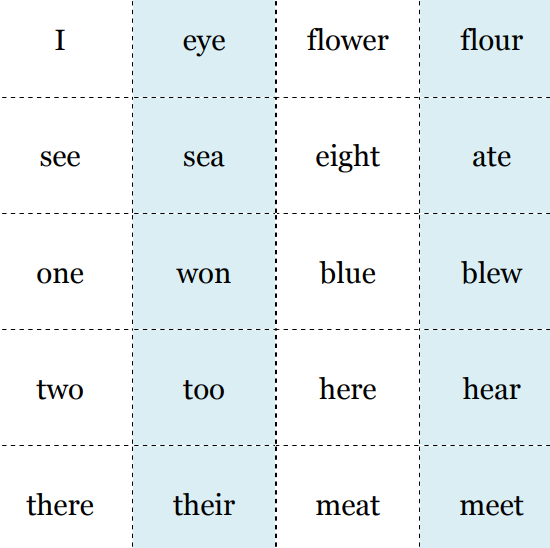
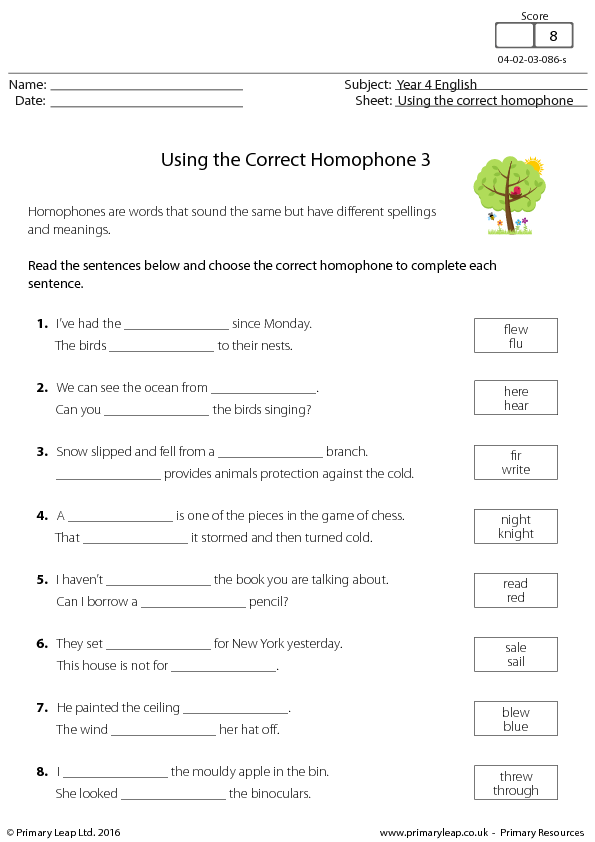
Here’s the rule:
| pronunciation | why? |
| car | It’s not followed directly by ‘e’, ‘i’ or ‘y’. |
| cut | It’s not followed directly by ‘e’, ‘i’ or ‘y’. |
| cool | It’s not followed directly by ‘e’, ‘i’ or ‘y’. |
| curtain | It’s not followed directly by ‘e’, ‘i’ or ‘y’. |
| carpet | It’s not followed directly by ‘e’, ‘i’ or ‘y’. |
| confuse | It’s not followed directly by ‘e’, ‘i’ or ‘y’. |
| caught | It’s not followed directly by ‘e’, ‘i’ or ‘y’. |
| pronunciation | why? |
| city | It comes directly before ‘i’. |
| cent | It comes directly before ‘e’. |
| dancing | It comes directly before ‘i’. |
| ice | It comes directly before ‘e’. |
| certain | It comes directly before ‘e’. |
| face | It comes directly before ‘e’. |
| receive | It comes directly before ‘e’. |
One notable exception is the word soccer. (We pronounce both the letters ‘c’ as a single /k/ sound /sokə/.)
Another exception is muscle /mʌsəl/.
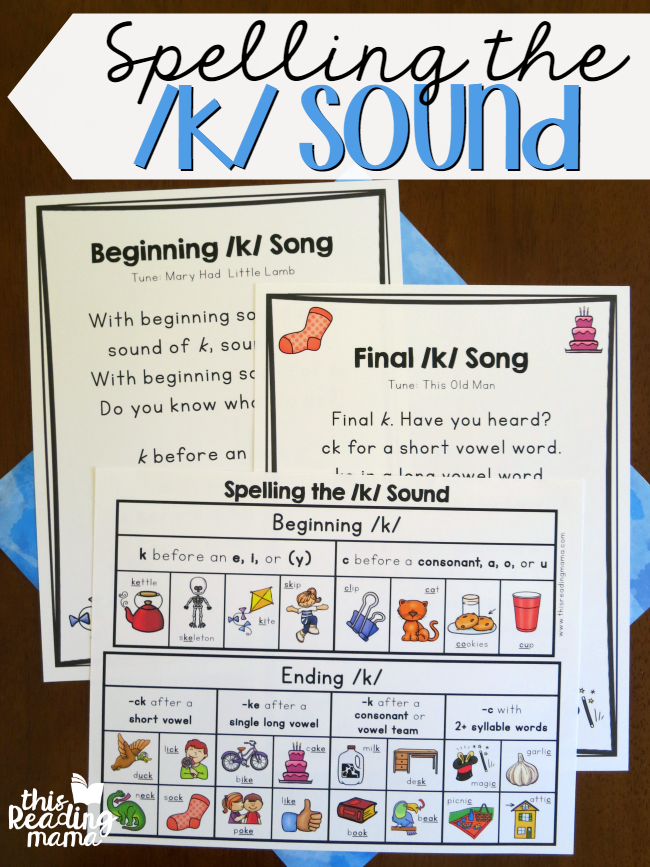
HELEN KELLER :
Combining sentences is a necessary part of fluent communication in the English language; however, with all of the transitions, subjects, predicates, verbs and verbals to consider, it’s easy to become overwhelmed. Sentence combining does not need to be a chore! In fact, if you follow these simple rules for combining sentences, you’ll probably find that it’s easy and you might even begin to enjoy it.
Independent clauses are essentially two sentences that could stand on their own-in other words, they don’t “depend” on another clause to allow them to make sense.
These sentences must be combined with the use of a connecting word known as a “conjunction.” Some popular conjunctions often used to achieve this purpose are:
and, but, for, nor, or, so, and yet
Each expresses something different, so use them wisely!
Sentences with the same subject can be combined, since you’re describing the same person, place, or thing completing different actions. This is very easy.
If two sentences contain different subjects that are accomplishing the same action, the sentences can be combined as well.
Notice that subjects, verbs, and independent clauses all have something in common. The sentences before they are combined unnecessarily repeat words that may be omitted by combining the sentences together.
By following these rules, your sentences will be more concise and interesting, and far less repetitive.
The semicolon is one of the most feared punctuation marks used in the English language. How is it used, and why? In reality, the semicolon is a powerful tool when used to combine sentences.
A semicolon is useful when two sentences that are related to one another in meaning must be combined, but a comma will not suffice. Normally, a semicolon can be used in the place of a period (also known as the “full stop”). You can use a semicolon in a number of ways in the following sentences.
Each conveys the same idea-but each also conveys that idea a bit differently.
With these simple rules for combining sentences, you can now combine sentences confidentially to make your speech and stories much more interesting.
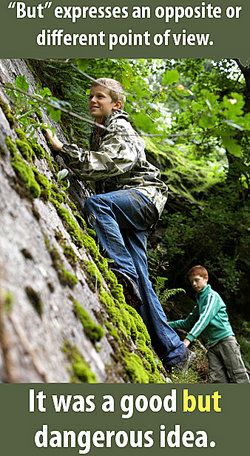
Combining Sentences with AND
When two sentences have the same subject, you can combine the predicates
with the word and.
example: The seagull flew over my head.
The seagull landed on the roof.
The seagull flew over my head and landed on the roof.
When two sentences have the same predicate, you can combine the subjects
with the word and.
example: My dad drives the boat.
My brother drives the boat.
My dad and brother drive the boat.
Combine each pair of sentences with the word and to make a new sentence.
1. Bobby played hide-and-seek.
Cindy played hide-and-seek.
Super Teacher Worksheets – http://www.superteacherworksheets.com
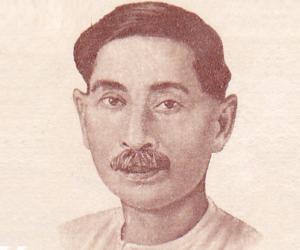
Munshi Premchand was an Indian writer counted amongst the greatest Hindustani writers of the early 20th century. He was a novelist, short story writer, and dramatist who penned over a dozen novels, hundreds of short stories, and numerous essays. He also translated a number of literary works of other languages into Hindi. A teacher by profession, he began his literary career as a freelancer in Urdu. He was an independent minded patriotic soul and his initial literary works in Urdu were replete with descriptions of the Indian nationalist movement that was building up in various parts of India. Soon he switched over to Hindi and established himself as a much loved author with his poignant short stories and novels that not only entertained the readers, but also carried significant social messages. He was much moved by the inhumane manner in which Indian women of his time were treated, and often depicted the miserable plight of girls and women in his stories hoping to create awareness in the minds of his readers. A true patriot, he quit his government job as a part of the non-cooperation movement called by Mahatma Gandhi even though he had a growing family to feed. He was eventually elected as the first President of the Progressive Writers’ Association in Lucknow.
We use For when we measure the duration – when we say how long something lasts.
For + a period of time
To measure a period of time up to the present, we use the present perfect tense and not the present tense.
The present tense with For refers to a period of time that extends into the future.
In reality, we can use all verb tenses with For.
| Uses of For | |
|---|---|
| Example sentence | Verb Tense |
| They exercise for two hours every day. | Present tense |
| They are exercising for three hours today. | Present continuous |
| He has lived in Moscow for a long time. | Present perfect |
| He has been living in Turin for three months. | Present perfect continuous |
| I worked at the service station for five years. | Past tense |
| He will be in hospital for at least a week. | Future tense |
However, we don’t use For with expressions such as all day or all the time.
For can be used with all tenses. Here are a few examples:
Since gives the starting point of actions, events or states. It refers to when things began.
Since + a point in time (in the past), until now.
With since we use the present perfect tense or the past perfect tense.
Since can also be used in the structure It has been + period of time + since.
Since is normally used with perfect tenses:
We also use since in the structure “It is [period] since”:
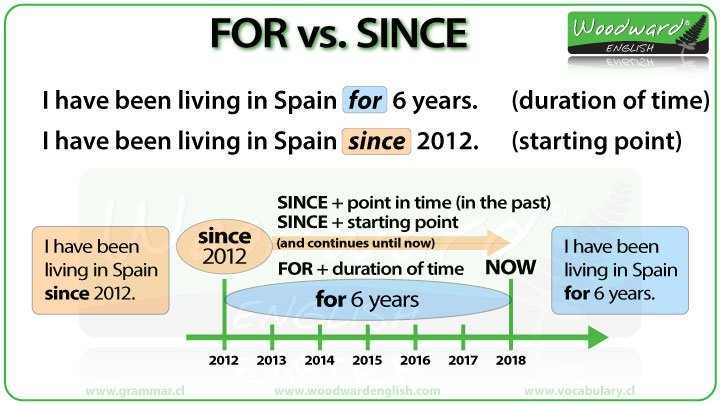
Now we are in 2018.
I first arrived in Spain in 2012.
2012 is the starting point.
We use SINCE with the starting point of when something happens and that continues until now.
I continue to live in Spain now so we say:
Since gives the starting point of actions or events and refers to when things began.
Since + a point in time (in the past)
Since + starting point
Now, what is the period of time between 2012 and 2018?
It is a period of 6 years.
The duration of time I have been in Spain is 6 years.
So I can say…. I have been living in Spain FOR six years.
We use FOR with a duration of time.
So let’s look at the two sentences again…
(FOR is used because we are giving the duration of time)
(SINCE is used because we are giving a starting point of time in the past)
FOR is used with a period of time.
This is often a number plus a time word.
FOR is used when we measure the DURATION of something or how long it lasts.
It has a start point and an end point and can be used in different tenses.
Here are some example sentences:
SINCE is used with a starting point or a time or date.
It refers to something that started in the past and continues until now.
SINCE is mostly used with the present perfect and perfect progressive tense.
Here are some example sentences:
Notice how everything after FOR refers to a duration of time.
However, the time period does not need to be exact. For example:
We could also say For a long time (which is less specific) or more informally, for ages.
Another inexact duration is:
For a while which normally means for a short period of time, not a long period.
Now let’s look at some examples using SINCE:
Notice how everything after SINCE refers to a starting point.
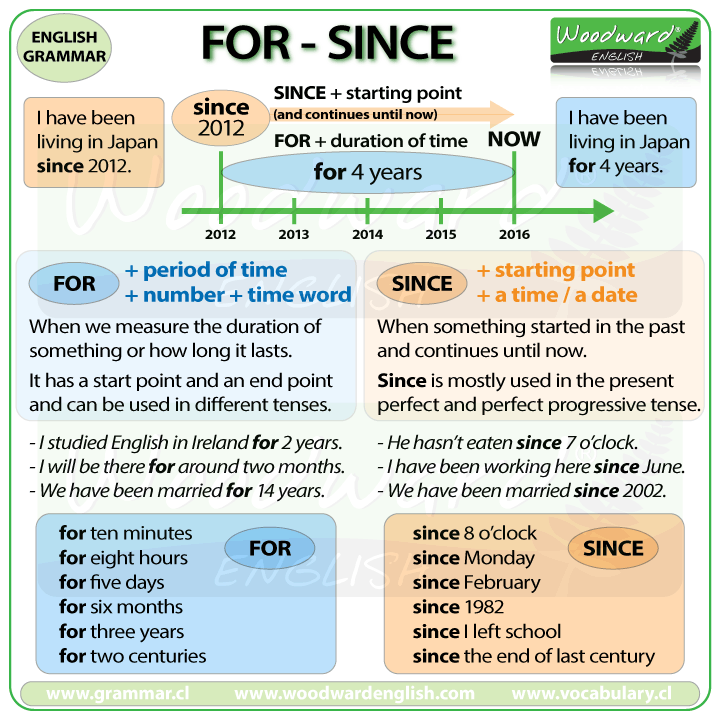
Both for and since also have other meanings, with no reference to time. Here are some examples:
THE LAZY FROG (POEM)
MAKE A MODEL OF A FROG USING COLOUR PAPERS:
(a) I love ________
Ans. I love to help my mother.
(b) I like _________
Ans. I like to play cricket on holiday.
(c) I don’t mind ________
Ans. I don’t mind washing my clothes.
(d) I don’t like _____
Ans. I don’t like bursting crackers on Diwali.
(e) I hate ______
Ans. I hate telling lies.
Now you try to write about your qualities like which I had given examples.
Let’s take a look at some rules for silent letters:
Examples: Able, Challenge, Bible
Examples: Smuggled, Dragged, Chained
One common spelling error is omitting the K at the beginning of words where it is silent (example: nick-nack instead of knick-knack). The origins of silent K are difficult to pin down. What we do know is that the k wasn’t always silent, especially in words of Germanic origin. Just as it is in German, the k was actually pronounced and many of the words which now have silent k originally began with that distinctive clicking sound.
Here’s a partial list of words with a silent K.
(b) neighbor, daughter, fight, straight _____
Ans. ‘gh’ is silent.
Digraphs consist of two consonants that are blended to make one sound.
The digraph (ph) has the sound of (f). ph = f
Read these words and sentences. They may be a little difficult but try to do your best. Have your assistant lend his /her help.
(ph) sounds like f

| alphabet | nephew |
| autograph | orphan |
| cellophane | phantom |
| digraph | pharmacist |
| dolphin | pharmacy |
| elephant | pheasant |
| graph | phone |
| microphone | phonics |
______________________________ ______________________________
______________________________ ______________________________
______________________________ ______________________________
Create your own sentences. Please include some words in your sentences that have the spelling pattern (ph) as in phone. Remember all sentences begin with a capital letter and end with a period (.), question mark (?), or exclamation point (!) Please be attentive to good penmanship skills.
Please illustrate your favorite sentence. Feel free to use the back of your paper.
A digraph is a combination of two letters representing one sound. (gh) is a digraph when this letter combination sounds like (f) as in laugh. The combination “gh” is not consistently a digraph. It may be silent as in (though), have a silent letter (ghost), or a vowel pattern (night). The vowel combination (au, ou) do not always follow phonetic rules. The (au, ou) words below are sight words.

| rough |
| tough |
| laugh |
| laughter |

Create a sentence. You must include one or more words that have the digraph “gh” that sounds like f (gh=f).
H s that are truly silent (not pronounced at all in any form of the word). The following list is meant primarily for English learners, so it also contains notes about other common pronunciation mistakes made by learners:
Note: The word “herb” and words derived from it (such as “herbal”) are usually pronounced with an H at the beginning in British and Australian English, while it usually remains silent in American and Canadian English.
/th/ thing
/th/ there
/sh/ share
/zh/ treasure/ng/ song
Dummy letters have two subgroups: inert letters and empty letters. Inert letters are letters that in a given word segment are sometimes heard and sometimes not heard. For example,
resign (g is not heard)
resignation (g is heard)
malign (g is not heard)malignant (g is heard)
Empty letters are letters that do not have a function like auxiliary letters or inert letters. The letter u in the word gauge is empty. Here are some examples of silent consonants:
Silent b: dumb, thumb
Silent c: indict
Silent ch: yacht
Silent d: bridge, ledge, edge
Silent g: foreign, sign, design, assign
Silent h: rhinoceros, spaghetti
Silent k: knee, knit, knob, know, knuckle
Silent l: calf, talk, could, should, would
Silent m: mnemonic
Silent n: autumn, column
Silent p: raspberry, receipt
Silent t: castle, listen, whistleSilent w: answer, wrap, wreath, wreck, wring, wrong, write
“There are no rules that we can apply to words with empty letters[;] you just have to use them and remember their spelling.”
(Jeffrey Strausser and José Paniza, Painless English for Speakers of Other Languages. Barron’s, 2007)
“Silent consonant letters constitute one of the problem areas in respect to pronunciation of English words. To solve some of the problems of the learners, a few spelling sequences containing silent letters are discussed below:
(i) b is always silent in the spelling sequences mb and bt occurring in the word-final position: comb, numb, bomb, limb, debt . . ..
(ii) d is always silent in the spelling sequence dj: adjective, adjunct, adjacent . . ..
(iii) g is silent in the spelling sequence gm or gn: phlegm, gnarl, champagne, sign, gnat, gnaw . . ..
(iv) h is silent in the spelling sequence gh and in the word-final position: ghost, ghetto, aghast, ghastly, ah, eh, oh.
(v) k is always silent in the word-initial spelling sequence kn: kneel, knee, knob, knight, knave, knowledge, knife, knock.”

I HOPE YOU WILL BE REVISING ALL THE LESSONS SO FAR WHAT I TAUGHT YOU TILL NOW!


DEAR CHILDREN,
TODAY WE ARE GOING TO LEARN HOW TO PRONOUNCE EACH ALPHABET AS THEY ARE HAVING DIFFERENT SOUNDS AND PRONOUNCED DIFFERENTLY EACH TIME. SO BE CAREFUL AND TRY TO LEARN THE SOUNDS FIRST WHICH WILL HELP YOU TO LEARN READING AND SPEAKING EASILY.